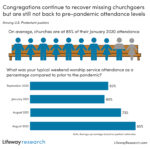
GLORIETA, N.M. (BP)–Teens who have experienced constant abuse and neglect deserve God’s grace, and ministers of youth or recreation are in the position to help them find it, a former youth minister said.
Jim Graham, a 15-year veteran of youth ministry and now a student at New Orleans Baptist Theological Seminary, said “crisis kids” can be placed in two categories. There are those at the “bottom of the cliff where an ambulance is needed” and there are rowdy teens who could use some guidelines and consistency.
Graham, a Ph.D. candidate who is adjunct and research associate for the Youth Ministry Institute at NOBTS, taught the seminar, “Caring for Crisis Kids,” to ministers of recreation attending Rec Lab, Feb. 25-March 2, at LifeWay Glorieta Conference Center, Glorieta, N.M.
Crises for kids can start in the home, at school or with peers, Graham said.
“At home, some kids experience harsh or unpredictable behavior patterns that include extreme neglect. They are left on their own to fend for themselves or for their younger brothers and sisters,” he said.
“Kids raised without parental guidance grow up without an appropriate sense of guilt,” Graham said. “Smoking and drinking or participating in sexual activity before age 12 is a clear indicator crisis stuff is going on in their lives.”
While youth ministers or ministers of recreation are not necessarily trained to handle teenagers with such severe problems, there are a few ways they can help, Graham said.
— Develop an intentional relationship with a teenager you believe is in trouble.
“As adults, you’ll have to initiate the relationship. Kids in crisis do not come up to you and tell you everything that is going wrong in their lives,” he said.
Some symptoms, Graham said, include what they wear, how they fix their hair, sporadic behavior patterns and significant weight loss, especially in girls.
— Do something with them or plan an activity around them. “They might be more willing to do something when an activity is involved,” he suggested.
— Schedule one-on-one time with them. “But never do that in private. Take them to lunch at a fast food restaurant where you can have a private conversation, but where there are a lot of people.”
— Don’t be afraid to go on their turf. “Find out where they like to hang out and go there.”
Before ministers offer help, they need to do their homework about the teen in question, Graham said.
“You need to know the problems going on in their home. What are some inappropriate things going on in your community the kid might be involved in? What’s going on with their peers?” he asked.
Ministers also should know their limitations as an individual, Graham said.
“What kind of time do you have? What kind of training do you have? What are your priorities? What is your giftedness? Who are the specialists in your area? When do you refer?”
He listed seven characteristics troubled teens exhibit and possible remedies to each situation.
1) Teens with few positive adult role models tend to reject authority, possess deep-seated anger, have difficulty attaching to others and struggle to express themselves. “The remedy is for someone to fill the role of father or mother in Christ so the person can experience all they are as a child of God,” he said.
2) Teens without a biblical worldview are confused about what’s right and wrong. They need a genuine encounter with Christ and to see authentic faith lived out in someone so they can reorient their lives around solutions that work.
3) Teens accustomed to failure tend to fear success. They need to see themselves as God sees them so they can live in accordance with that identity.
4) Teens who have experienced significant pain tend not to trust other people. They need to feel like they belong so they can take risks to trust again.
5) Teens who lack hope and a sense of purpose in their lives tend not to plan for tomorrow. They need a dream or vision so they can make decisions with a long-term perspective.
6) Teens who feel powerless, without many positive options, usually rebel in unhealthy ways. They need empowerment and healthy boundaries so they can move toward healthy independence.
7) Teens who have felt abandoned tend to give up on themselves. They need at least one person in their lives who believes in them so the teen can become a potential advocate for others.
When “rowdy” or crisis teens visit a church’s youth or recreation ministries, good discipline policies should be in place, Graham said.
Using material developed by Richard Ross, professor of youth ministry at Southwestern Baptist Theological Seminary, Fort Worth, Texas, Graham said there are four keys to developing a good discipline policy. They are:
— Use a positive approach. Don’t refer to cleaning up the youth group. Refer to providing a safe, warm, structured environment.
— Define expectations in advance.
— Build in a warning procedure that is positive. If the teen is constantly disrupting events, talk to them about their need to follow guidelines. For example, a minister might say to the teen, “I think you recognize this isn’t working, and I want you to stay, but if you can’t participate constructively, you will have to leave the group.” That makes it the teen’s choice to leave or stay under the current guidelines.
— Develop a plan for consequences and carry them out.
“Kids don’t ultimately turn against the church if our discipline policies are consistent and fair,” Graham said. “When teenagers know the routine, they do what is right.”
Graham cited the Youth Ministry Institute website, www.youthministryinstitute.org, as a resource for helping teens in crisis.
Rec Labs are leadership conferences for ministers who work in the field of sports and recreation and are sponsored by LifeWay Christian Resources of the Southern Baptist Convention. More than 100 people attended the Glorieta conference. A separate Rec Lab was held in January at Lake Yale Conference Center in Florida. For more information about Rec Labs, call (615) 251-3848 or e-mail John Garner at [email protected].
–30–



















